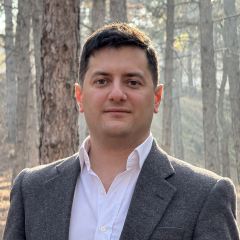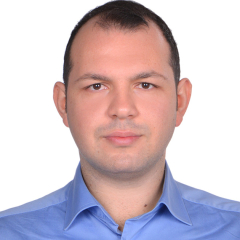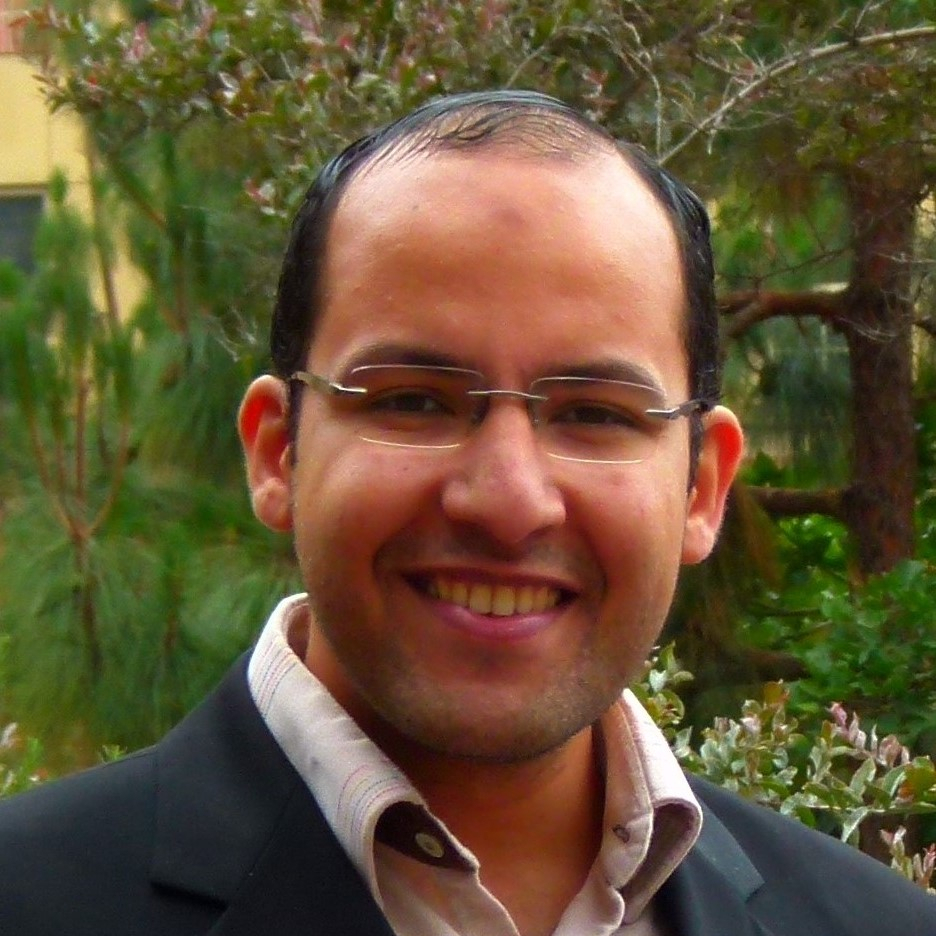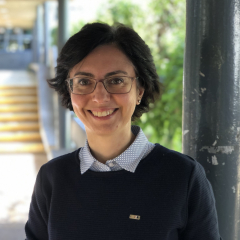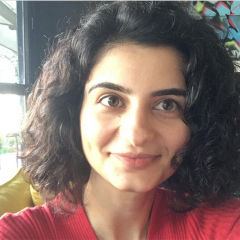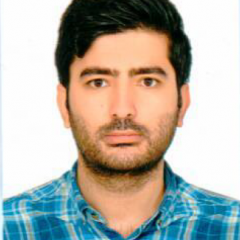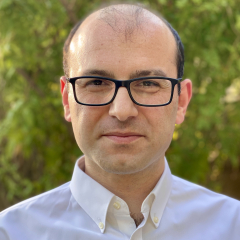Kenan Ahıska, 2025
Kenan Ahıska received his B.S., M.S., and Ph.D. degrees in Electrical and Electronics Engineering from Middle East Technical University (METU), Ankara, Turkey, in 2010, 2012, and 2016, respectively. From 2018 to 2019, he was a postdoctoral researcher at the Defence Academy of the United Kingdom, Cranfield University. Between 2010 and 2025, he worked at ASELSAN in various roles, including design engineer, systems engineer, and algorithm design engineer. In 2025, he joined the Electrical and Electronics Engineering Department at METU as an Assistant Professor.
His research interests include control theory and its applications, guidance, control, and navigation systems, robotics, unmanned/autonomous and cooperative vehicles, deep learning, optimization, and task allocation.
Yunus Aslan, 2024
Yunus Aslan received his B.Sc. degree in Electronics Engineering from Istanbul Kültür University in 2013, his M.Sc. degree in MicroElectroMechanical Systems (MEMS) from Southampton University in 2018, and his Ph.D. degree in Biomedical Engineering from Glasgow University in 2024. He was a visiting researcher at Harvard University from 2023 to 2024. In 2024, he joined the Electrical and Electronics Engineering Department at METU, where he is currently working as an Instructor.
His research interests lie in the development and application of droplet-based microfluidic systems, particularly for biomedical applications, which include diagnostic devices, drug delivery systems, and exploration in cell and synthetic biology.
Hasan Uluşan, 2024
Hasan Uluşan received the B.Sc., M.Sc., and Ph.D. degrees in Electrical and Electronics Engineering from METU, Ankara, Turkey in 2011, 2013, and 2018, respectively. Between 2019-2023, he was a Postdoctoral Researcher with Bio Engineering Laboratory, Department of Biosystems Science and Engineering, ETH Zürich, Switzerland. Between 2023-2024 he worked as a Lead Researcher at METUMEMS Center Ankara, Turkey. In 2024, he joined the Electrical and Electronics Engineering Department at METU, where he is currently working as an Assistant Professor.
Dr. Uluşan won the 2019 Ph.D. Thesis of the Year Award from IEEE Turkey Section and received the TÜBİTAK 2232 International Fellowship for Early Stage Researchers. His research interests include integrated circuits and systems design, especially for low-power applications, biosensor interfaces, neuroscience, neurological and cardiological disease modeling, power management circuits for energy harvesting systems, and mixed-signal circuits and systems for wearable and implantable medical applications.
Ahmed Hareedy, 2022
Ahmed Hareedy is an Assistant Professor with the Electrical and Electronics Engineering Department at Middle East Technical University (METU), Turkey. He is interested in questions in coding/information theory that are fundamental to opportunities created by the current, unparalleled access to data and computing. He received the Bachelor and M.S. degrees in Electronics and Communications Engineering from Cairo University, Egypt, in 2006 and 2011, respectively. He received the Ph.D. degree in Electrical and Computer Engineering from the University of California, Los Angeles (UCLA) in 2018. He was a Postdoctoral Associate with the Electrical and Computer Engineering Department at Duke University between 2018 and 2021. He worked with Mentor Graphics Corporation between 2006 and 2014. He worked with Intel Corporation in the summers of 2015 and 2017.
Dr. Hareedy won the 2018-2019 Distinguished Ph.D. Dissertation Award in Signals and Systems from the Electrical and Computer Engineering Department at UCLA. He is a recipient of the Best Paper Award from the 2015 IEEE Global Communications Conference (GLOBECOM). He won the 2017-2018 Dissertation Year Fellowship (DYF) at UCLA. He won the 2016-2017 Electrical Engineering Henry Samueli Excellence in Teaching Award at UCLA. He is a recipient of the Memorable Paper Award from the 2018 Non-Volatile Memories Workshop (NVMW). He is a recipient of the 2018-2019 Best Student Paper Award from the IEEE Data Storage Technical Committee (DSTC).
Ayşe Melda Yüksel Turgut, 2021
Melda Yuksel is an associate professor at Middle East Technical University, Ankara, Turkey.
Dr. Yuksel received the B.S. degree in electrical and electronics engineering from Middle East Technical University, Ankara, Turkey, in 2001, and the Ph.D. degree in electrical engineering from Polytechnic Institute of New York University, Brooklyn, NY, in August 2007. She worked at TOBB University of Economics and Technology, Ankara, Turkey, from 2007 to 2021.
She was a summer researcher in the Mathematical Sciences Research Center, Bell Laboratories, Lucent Technologies, Murray Hill, NJ, in 2004, a complementary visiting faculty at Rice University, Houston, TX, in Spring 2009, and a visiting professor at the Universite Catholique de Louvain, Louvain-la-Neuve, Belgium, in Spring 2010. Her research interests are in wireless communications, communication theory and information theory.
Dr. Yuksel is the recipient of the best paper award at the Communication Theory Symposium of the 2007 IEEE International Conference on Communications and the 2012 Turkish National Science Foundation CAREER Award.
Dr. Yuksel was the treasurer of 2013 IEEE International Symposium of Information Theory. She is currently serving as an editorial board member of PHYCOM, Physical Communication, and an associate editor for Frontiers in Communications and Networks Journal.
Elif Tuğçe Ceran Arslan, 2021
Elif Tugce Ceran Arslan received the B.S. and M.S. degrees in Electrical and Electronics Engineering from METU, Ankara, Turkey in 2012 and in 2014 respectively, and Ph.D. degree in electrical and electronics engineering from Imperial College London (ICL) in 2019. Between 2020-2021, she was a postdoctoral researcher at Communication Networks Research Group, METU. In 2021, she joined the Electrical and Electronics Engineering Department at METU, where she is currently working as an Assistant Professor.
Her research interests lie mainly in the intersection between machine learning, wireless communications and the Internet of Things in addition to the resource allocation, 5G networks, distributed/federated learning, reinforcement learning, performance evaluation and optimization of computer networks.
Keyvan Firuzi, 2021
Keyvan Firuzi received the B.Sc. degree in Electrical and Electronics Engineering from University of Tabriz, Tabriz, Iran in 2012, the M.Sc. degree in Electrical Power Engineering and the Ph.D. degree in Electric Power Engineering (High Voltage Engineering) from Sharif University of Technology, Tehran, Iran in 2014 and 2019 respectively. He was a post-doctoral researcher at the same university from 2019 to 2020. From 2015 to 2018, he was a Research Scientist with Niroo Research Institution (NRI). In 2021, he joined the Electrical and Electronics Engineering Department at METU, where he is currently working as an Assistant Professor.
His research interests include High Voltage Engineering, Dielectrics and Insulation, Partial Discharge, Condition Monitoring and Diagnosis of High Voltage Equipment, Signal Processing, and Machine Learning.
Ahmet Cemal Durgun, 2020
Ahmet Cemal Durgun received his B.S. degrees in Electrical and Electronics Engineering and Mathematics, from Middle East Technical University (METU), Ankara, Turkey, in 2005 and 2006, respectively, his M.S. degree in Electrical and Electronics Engineering from METU in 2008, and his Ph.D degree in Electrical Engineering from the Arizona State University, Tempe, AZ, USA, in 2013. From 2014 to 2020, he was with the Intel Corporation, Assembly and Test Technology Development, Chandler, AZ, USA, where he worked on the development of innovative microelectronic packaging solutions for high-speed I/O interfaces, very fine pitch interconnects, and signal integrity of chip to chip communication channels. In 2020, he joined the Electrical and Electronics Engineering Department at METU, where he is currently working as an Assistant Professor.
His research interests include applied electromagnetics, microelectronic packaging, signal and power integrity of high-speed I/O interfaces, fine pitch interconnects for 2.5-D and 3-D integration, and machine learning applications of packaging and electromagnetic problems. Dr. Durgun is also a Guest Editor of IEEE Transactions on Components, Packaging and Manufacturing Technology and recipient of the TÜBİTAK 2232 International Fellowship for Outstanding Researchers.

